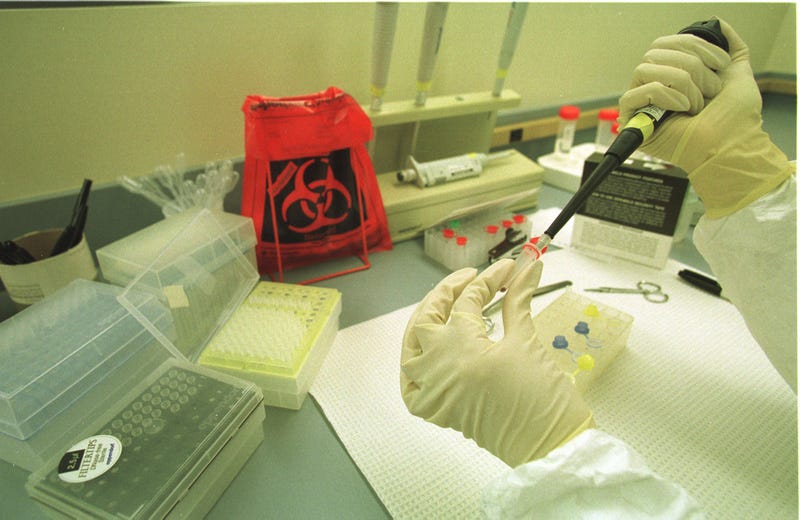
NEW YORK (1010 WINS) -- A mid-level New York State appellate court ruled Thursday that state law enforcement could not use its DNA database to search for relatives of people in the database.

In a 3 to 2 decision, the court found that the practice of familial DNA searches disproportionately targets people of color, puts some individuals under scrutiny that others do not face and has been implemented without the consent of the state legislature.
The state started its DNA database in 1994, and officers routinely run DNA samples collected at crime scenes through it.
Familial DNA searches go a step further, by allowing law enforcement to see if DNA collected at a crime scene belongs to a family member of someone in the database.
The State Commission on Forensic Sciences voted to allow familial DNA searches, but the court ruled it did not have the authority to do so.
Associate Justice Judith J. Gische specified in the majority opinion that the state legislature would need to pass a new law in order for the practice to be legal.
"We find that the overwhelming policy issues inherent in authorizing the use and limitations upon familial match searches of DNA information collected in the New York State databank warrants a conclusion that it is an inherently legislative function and that the challenged regulation cannot stand," she wrote.
The opinion criticized the practice for placing certain New Yorkers under greater scrutiny simply because they are related to someone who committed a crime.
Gische also argued that, because a disproportionate number of people in the database are people of color, the practice works to further criminalize some groups based on race.
The Legal Aid Society brought forward the lawsuit on behalf of a group of Black men who worried they could be targeted for investigation because their brothers were convicted of crimes.
"We laud this decision which affirms our serious constitutional, privacy and civil rights concerns around familial searching, a technique that disproportionately impacts Black and Latinx New Yorkers,” said the LAS in a statement.
State law enforcement agencies have not yet announced whether the state intends to appeal the decision.


